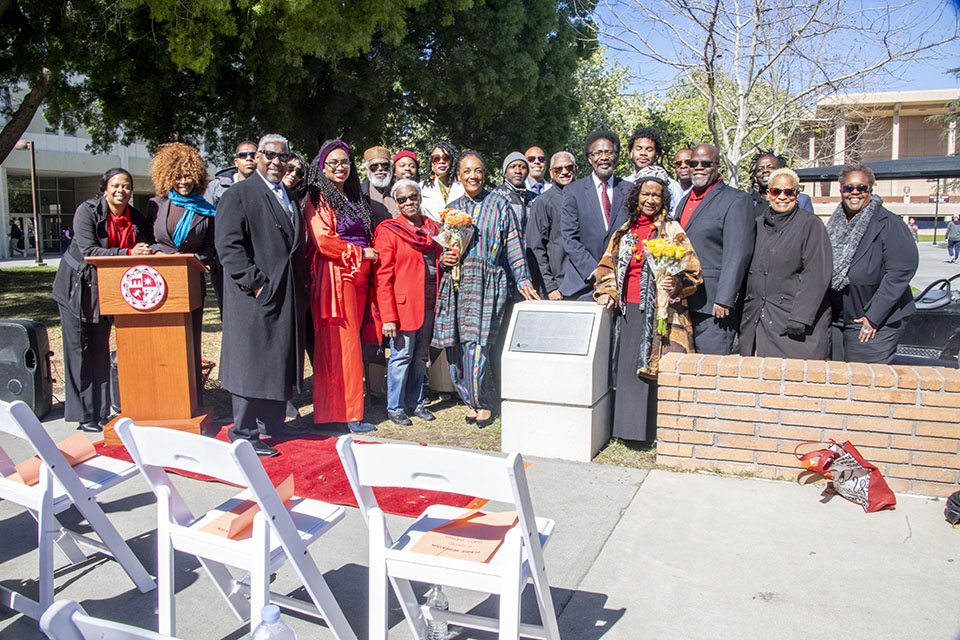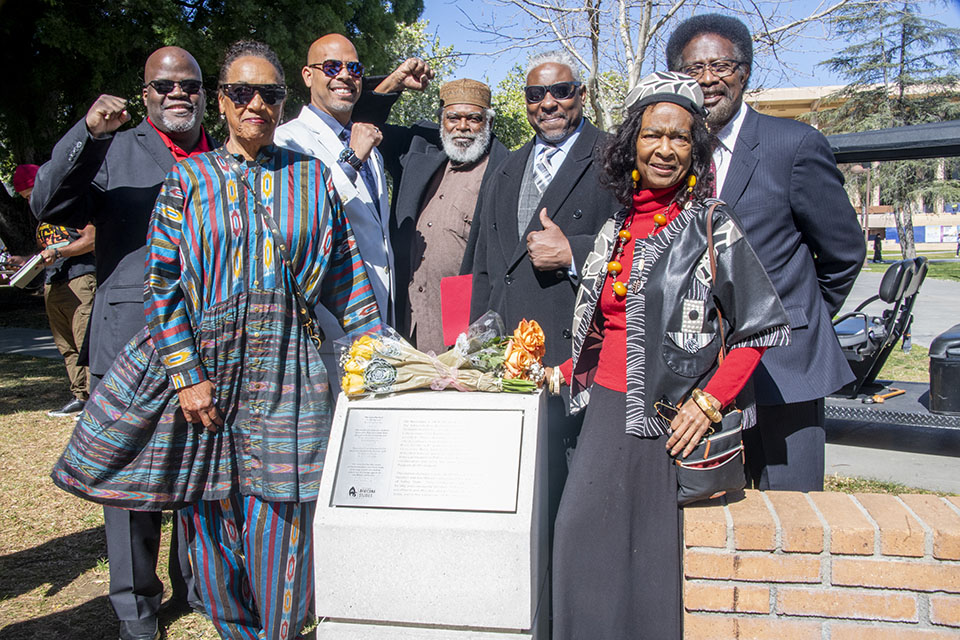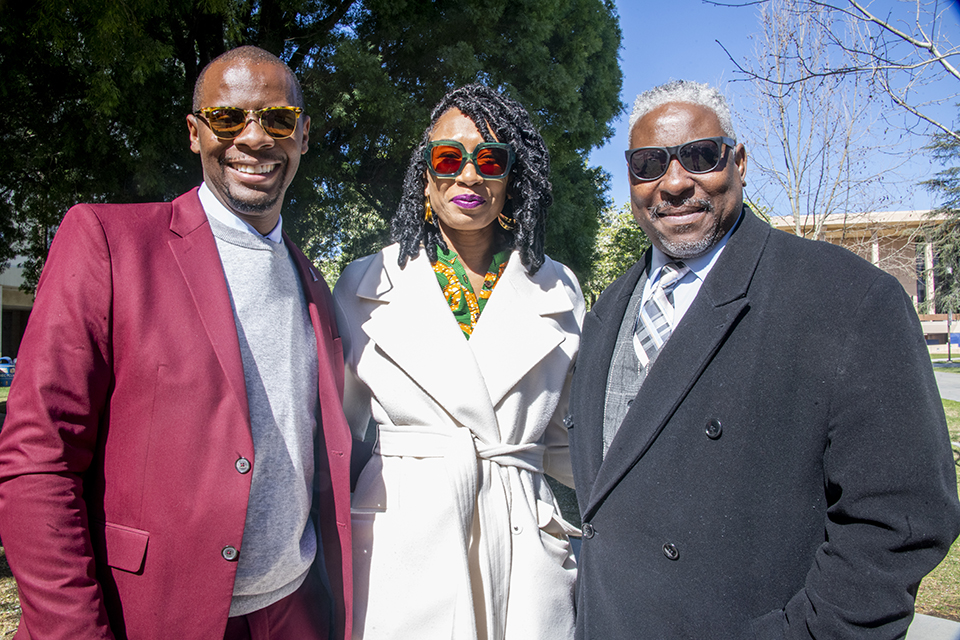Africana Studies Faculty, Alumni and Students Gather to Honor Department’s Origins
Students and faculty (current and emeriti) gathered outside Sierra and Jerome Richfield Halls on Feb. 15 to celebrate and honor the founders of CSUN’s Department of Africana Studies, with the unveiling of a plaque marking its origins.
“This memorial plaque is dedicated to the ground-breakers (founding faculty) and torchbearers who paved the way during the Storm at Valley State,” the plaque’s inscription reads, in part.
The “Storm at Valley State,” is a documentary that chronicles the student protests that eventually led to the creation of what was then known as the Afro-American Studies department, the Chicano/a Studies department and the Educational Opportunity Program (EOP), among the first programs of their kind in the nation.
When Afro-American Studies was introduced on the San Fernando Valley State College campus in 1969, it created a unique space for Black and African American students, as well as for professors, who wanted to encourage students of color to pursue higher education.
CSUN Today spoke to Marquita M. Gammage, department chair, and Cedric Hackett, associate professor and director of the DuBois-Hamer Institute for Academic Achievement, about what drew them to higher education and what fuels their passion for teaching, particularly in this multidisciplinary field.
Marquita Gammage
“As a first-generation college student, who consistently experienced and witnessed educational injustice, I wanted to become a professor because I felt a responsibility and duty to ensure that all students receive a holistic educational experience that allows them to thrive and reach their goals,” Gammage said. “I wanted to empower students in the way my professors at Howard University empowered me.”
Cedric Hackett
“My father stressed the importance of higher education or service, and my mother stressed the importance of support. My father only finished the third grade, and [my] mother finished high school and beauty school. They always told us to get all the education we can for a better life,” Hackett said. “I stay because I feel like that is my purpose in life — to inspire the minds of future generations, especially underrepresented communities. I will continue to make a difference!”
Check out the plaque dedication ceremony, in photos.




 experience
experience